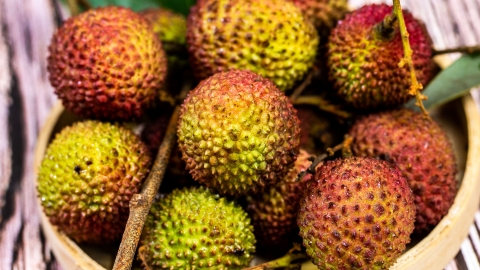Can a one-year-old child eat lychee?
Whether a one-year-old child can eat lychee should be determined based on their chewing ability and physical reactions. Children with good chewing ability, no history of allergies, and who consume only small amounts may have a small quantity. However, those with weak chewing ability, allergies, or sensitive gastrointestinal systems should avoid it. Detailed analysis is as follows:

If a one-year-old child already has eight or more primary teeth, possesses basic chewing ability, and has no history of fruit allergies, you may peel and de-seed a lychee and mash a small amount of the pulp into a puree for feeding. Lychee is rich in vitamin C and glucose; consuming a small amount can provide essential nutrients, and its pureed texture is suitable for infants' digestion. As these children's gastrointestinal functions are gradually maturing, eating small amounts of lychee is unlikely to cause discomfort, but care must be taken to remove the seed to prevent choking risks.
One-year-olds with weak chewing abilities, no teeth, or underdeveloped swallowing functions may experience choking due to the soft and slippery texture of lychee flesh. Failure to remove the seed further increases the risk of suffocation. Children allergic to tropical fruits may develop allergic reactions such as rashes or diarrhea after consuming lychee. For children with sensitive gastrointestinal systems, the fruit acids and sugar in lychee may irritate the intestines, causing bloating and diarrhea. Additionally, lychee is a warm-natured fruit, and excessive consumption may lead to symptoms of excessive internal heat in infants, such as dry mouth and constipation.
When feeding lychee to a one-year-old, the flesh should be mashed into a puree, and the serving size should not exceed 1/4 of a lychee at one time. An adult should supervise the child throughout the entire feeding process to prevent choking or accidental swallowing of the seed. If the child has insufficient chewing ability, a history of allergies, or experiences discomfort after consumption, discontinue feeding immediately and consult a doctor.









